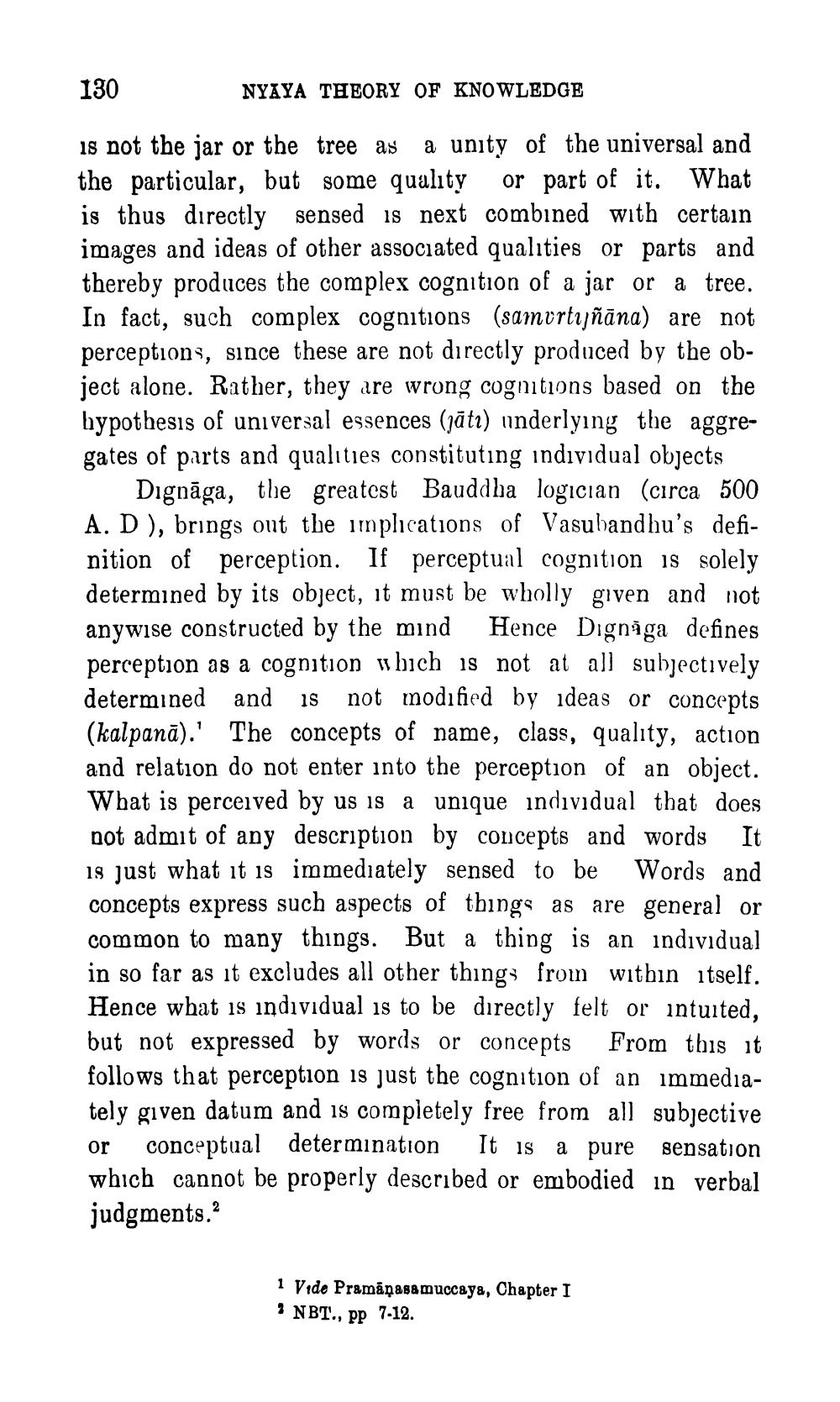________________
130
NYAYA THEORY OF KNOWLEDGE
is not the jar or the tree as a unity of the universal and the particular, but some quality or part of it. What is thus directly sensed is next combined with certain images and ideas of other associated qualities or parts and thereby produces the complex cognition of a jar or a tree. In fact, such complex cognitions (samurtijñāna) are not perceptions, since these are not directly produced by the object alone. Rather, they are wrong cognitions based on the hypothesis of universal essences (jātz) underlying the aggregates of parts and qualities constituting individual objects
Dignāga, the greatest Bauddha logician (circa 500 A. D ), brings out the implications of Vasubandhu's definition of perception. If perceptual cognition is solely determined by its object, it must be wholly given and not anywise constructed by the mind Hence Digniga defines perception as a cognition which is not at all subjectively determined and is not modified by ideas or concepts (kalpanā).' The concepts of name, class, quality, action and relation do not enter into the perception of an object. What is perceived by us is a unique individual that does not admit of any description by concepts and words It 18 just what it is immediately sensed to be Words and concepts express such aspects of things as are general or common to many things. But a thing is an individual in so far as it excludes all other things from within itself. Hence what is individual is to be directly felt or intuited, but not expressed by words or concepts from this it follows that perception is just the cognition of an immediately given datum and is completely free from all subjective or conceptual determination It is a pure sensation which cannot be properly described or embodied in verbal judgments.?
1 Vide Pramāṇasamuccaya, Chapter I ? NBT., pp 7.12.




